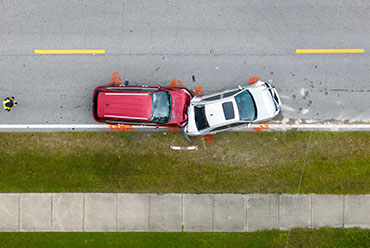
Here is what you will learn from this article:
- Whether it is a good idea to delay medical treatment after a car accident
- How posting on social media can hurt your car accident case
- Whether you should settle with an insurance company before speaking to a lawyer.
Why Is It A Mistake To Delay Medical Treatment After A Car Accident?
With the confusion and adrenalin that come with a motor accident, it’s easy to make several mistakes unknowingly, such as not getting timely medical treatment.
There are three big reasons why you don’t want to do that.
- The longer you wait to get medical treatment, the less effective that medical treatment is going to be. Many doctors and physical therapists will assure you that the sooner you start treatment in relation to when an injury was suffered, the more effective that treatment will be.
- Every insurance policy in Florida contains $10,000 of Personal Injury Protection coverage. That will pay 80% of your medical bills, up to $10,000, but only if you seek treatment within 14 days of the accident or injury. If you wait longer than that, that $10,000 of coverage is no longer available to you.
- A “treatment gap” is commonly used by insurance companies to deny your claim. They will argue that if you were truly injured, you wouldn’t have waited to seek medical help but would have sought care on the day of the accident itself.
People may have valid reasons for not seeking medical care immediately. Sometimes, pain only becomes noticeable a few days after the accident. Sometimes your schedule is demanding.
However, insurance companies will see any treatment gap as an excuse to try to deny or minimize the injury claim. As a result, it’s always important to seek medical treatment immediately and not put it off.
How Can Posting On Social Media Hurt My Car Accident Case?
Social media has become a big part of life, and for many people, it acts as a message relay platform. In case of an accident, you may want to notify your friends and family about the incident through social media. However, this might not be the best approach.
There are two main ways that posting could cause you problems. For one, insurance companies will very often use social media posts to try to minimize your injury claim. If you claim that you have a back injury but then post pictures of yourself going for a hike, the insurance company can use this to downplay the seriousness of your injury.
The other significant risk is that posting something about how the accident happened could work against you if what you say online contradicts claims made in the negotiation or lawsuit process.
For instance, if your claim in the lawsuit is that somebody T-boned you while you were standing still in traffic, but your post online says that you were flying through the intersection when you got hit, that will obviously harm the credibility of any claims you make.
Anything that deviates in any way from what claims are being made through your attorney will be seized upon by the insurance company. So, it is best not to make any social media posts relating in any way to the accident, your injuries or medical treatment.
Additionally, avoid social media posts that show you performing any activities (such as dancing, skiing, or heavy lifting) that you do not want to have to explain later at trial in light of your injuries.
Why Is It Risky To Settle With Insurance Companies Before Speaking To An Attorney?
It is quite common for insurance companies to approach you for a settlement before you secure an attorney. While this might look like goodwill on their part, it’s not. Settling without speaking to an attorney can leave you with a wide range of problems.
Insurance companies do not respect claims that attorneys do not bring. They generally look for any reason to deny a claim. Any insurance or demand made to insurance in a settlement or lawsuit context should always have an “or else.”
If I send a demand to an insurance company for my injured client and I say, “You must pay the full $10,000 policy limit,” the “or else” is, “Or else I will file a lawsuit.” That’s often explicitly stated. But if you make a demand to an insurance company without an attorney, there’s a high likelihood the insurance company won’t take your claim seriously.
Filing a lawsuit is the only recourse for an insurance company that is denying or lowballing your claim. If you do not have that recourse ready to go, most insurance companies will deny or lowball your claim because they think that they can get away with it.
Insurance companies have also been caught doing underhanded things like sending adjusters to hospital rooms and getting accident victims to sign releases for pitifully low amounts while the victim is dazed, medicated, and unrepresented. This is why securing an attorney as early as possible, especially when you’re still vulnerable, is critical.
For victims of auto accidents, it’s vital to acknowledge that insurance companies do not have your best interests in mind. They have their own best interests in mind, and so they have to be compelled to make any kind of reasonable offer. The only reasonable way to compel them is to make those demands through an attorney.
How Could A Lack Of Documentation Impact My Claim?
One of the reasons you could lose a claim is because you don’t have enough documentation to prove your case. One of the functions of having a lawyer is to ensure you gather all the necessary documents you need to compel the insurance company to pay your claim. Not having some documents could negatively impact your claim.
In terms of medical documentation, any complaints or claims made regarding injuries must be reflected in medical documentation. From the perspective of an insurance company and the perspective of juries, it’s not enough to simply say you suffer some type of pain or injury but can’t produce any medical documentation showing that you have sought treatment for it.
You should also have diagnostic material, such as MRIs showing physical damage, to back up the claim; otherwise, it will not be taken seriously.
It is essential for any symptoms, pain, or impacts from the accident to be discussed with your medical providers so they can provide treatment or, at the very least, note your complaints in their formal records. This will be much more useful for proving the extent of your damages than simply making claims without any documentation.
What Are Common Mistakes After A Car Accident, And How Can I Avoid Making Them?
After an accident, it’s common for most people to make mistakes because they don’t know what to do or because of the confusion that comes with being involved in an accident. Should you find yourself in a similar incident, knowing the mistakes to avoid can ensure you get maximum compensation and avoid sabotaging your claim.
The most common mistake made immediately after an auto accident is failing to get all the necessary information. The most important step after an accident is to get the other driver’s information, if possible.
It’s also essential to call the police and have a police report made to substantiate the claim of the accident. If there’s no police report, an insurance company could simply argue that the accident may not have happened at all, and that’s a bad position to start from.
You should also take pictures of the scene. Many people forget to take pictures of where the cars are, the damage to the cars, injuries suffered, and bruising. These are very important to have. Obviously, once a car has been repaired, you can’t take pictures of the damage, but pictures of the accident scene or visible damage to a car can be very important and help emotionally sway a jury regarding the claims of injuries.
How Can I Repair Damage Done By Inadvertent Comments To The Other Driver Or The Insurance Adjuster?
After an accident, you may find yourself apologizing, wanting to know how the other party is doing, or even admitting fault. Such comments can damage your case!
Explaining the context of your words depends on what was said and how it was said. But statements made in the immediate aftermath of an accident can often be mitigated by arguing that you were injured, in pain, in shock and dazed from the accident.
Your lawyer can also argue that emotions were running high, and what was said is not indicative of what actually happened or what you were actually feeling. If it comes to a lawsuit, there are procedural means of excluding certain statements made from evidence, such that the jury does not get to hear them based on a similar logic.
An excited utterance made after a traumatic event can sometimes be excluded from evidence; while it could be more impactful for a jury, it doesn’t actually prove anything due to the context in which it was uttered.
There are ways to mitigate the impact of troublesome statements in legal procedures and in terms of simply making arguments based on the facts of what happened, what was said, and under what circumstances it was said.
Still Have Questions? Ready To Get Started?
For more information on Don’t Make These Mistakes After A Car Accident In Florida, a free initial consultation is your next best step. Get the information and legal answers you are seeking by calling (954) 466-2185 today.
